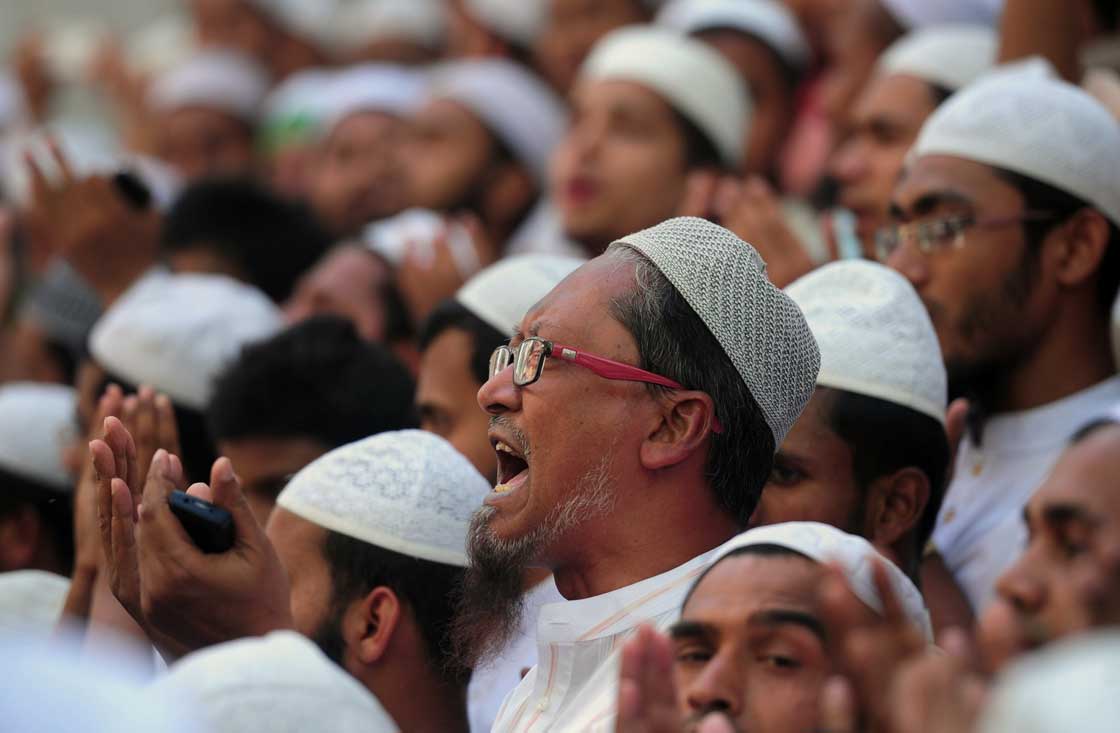DHAKA, Bangladesh – A Bangladesh tribunal convicted a top Islamic party politician Thursday of atrocities stemming from the nation’s 1971 independence war and sentenced him to death, triggering fears of another wave of deadly street violence between party supporters and security forces.

The verdict against Muhammad Kamaruzzaman was the fourth verdict in Bangladesh’s war crimes tribunals since January. Dozens of people have been killed in the riots that followed the earlier cases.
There were clashes in at least two cities Thursday but no immediate reports of injuries. In northwestern Rajshahi, police fired tear gas to disperse dozens of supporters of Kamaruzzaman who tried to block roads and attack vehicles, private NTV television station reported. Protesters smashed several vehicles in northeastern Sylhet city, local police official Rezaul Karim said.
Prime Minister Sheikh Hasina has called the trials a long-overdue effort at obtaining justice against war criminals four decades after Bangladesh split from Pakistan. Critics accuse Hasina of using the tribunals to decimate the country’s opposition parties ahead of elections scheduled for next year.
Kamaruzzaman, 61, was convicted in a packed courtroom of five counts of mass killings, rape, torture and kidnapping, Attorney General Mahbubey Alam said.
Kamaruzzaman was found guilty of leading his followers to kill at least 183 people in his home district of Sherpur in northern Bangladesh. The prosecution said he formed the group Al-Badr to collaborate with the Pakistani army and led them to kill unarmed people and rape women.
Bangladesh says the war left 3 million people dead, 200,000 women raped and forced millions to flee to neighbouring India.
Obaidul Hassan, the head of the three-judge tribunal, said the charges had been proved beyond a doubt and sentenced him to death.
Defence lawyer Ehsan Siddiky said justice was denied to his client and he promised to appeal.
During the trial, Kamaruzzaman denied the allegations and said the prosecution was politically motivated.
Kamaruzzaman is the assistant secretary-general of Jamaat-e-Islami, a hardline Islamic party that opposed Bangladesh’s independence but denies participating in wartime atrocities. The party is a key partner in the opposition coalition.
Bangladesh put its security forces on high alert in anticipation of the verdict.
In February, more than 70 people were killed as riots swept through Bangladesh after the war crimes tribunal ordered another top Jamaat leader, Delwar Hossain Sayedee, to die for crimes against humanity.
Another Jamaat leader, Abdul Kader Mollah, was given life imprisonment in February. The first verdict of the tribunal was against Abul Kalam Azad, an Islamic cleric and a former Jamaat leader who was sentenced to death.
Thursday’s verdict came on the second day of a two-day opposition national strike.
The strike, which had been mainly quiet Wednesday and Thursday morning, was called by 18 opposition parties to demand changes in the electoral law and to protest the deaths of 29 people, including many Islamic hardliners, during street demonstrations Monday.
Those earlier demonstrations called for new anti-blasphemy laws and were led by the new Islamic organization Hefazat-e-Islam, which says it is a non-political group formed to fight those who want to undermine Islam in Muslim-majority Bangladesh.
However, many in Bangladesh suspect the group is proxy for Jamaat, whose leaders have gone into hiding to avoid being arrested by the war crimes tribunals.
Analysts see the street violence as a show of power ahead of next year’s general election, expected to pit Hasina against her archrival, former Prime Minister Khaleda Zia.



Comments